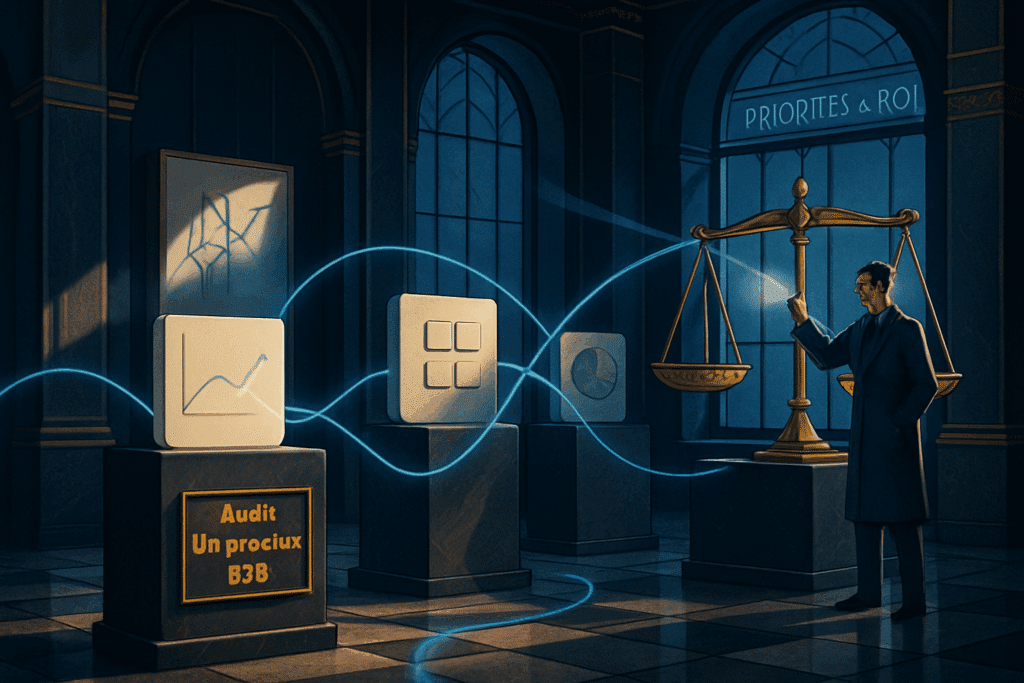Artificial intelligence (AI) is poised to revolutionize the daily operations of SMEs. It promises efficiency gains, improved customer service, and better data analysis. The enthusiasm is palpable, but adopting an AI tool should not be merely a technological decision; it is, above all, an ethical decision that entails your responsibility towards your clients.
Integrating AI is like hiring a new digital employee. You would not hand over the keys to your business to just anyone without checking their references. The same applies to AI. To build and maintain your client’s trust, it is crucial to adopt a Responsible AI approach.
Here are 3 fundamental questions to ask yourself before integrating an AI solution into your business processes.
1. Where is My Clients’ Data Stored and how is it Protected?
This is the most important question, especially in a legal context like Quebec’s with Bill 25. When you use a conversational agent to interact with your clients or a smart CRM to analyze their behavior, you are handling personal information.
It is imperative to know:
- Where is the data stored? Is it hosted on servers in Canada, the United States, or Europe? The data’s location has a direct impact on the laws governing it.
- Who has access to this data? Does the AI tool provider have the right to view or use it to train their own models?
- What security measures are in place? How is the data encrypted and protected against unauthorized access?
Our approach at Les Communicateurs: We prioritize solutions that guarantee the confidentiality and sovereignty of your data. We ensure our tools comply with local laws and help you implement clear and secure data processing strategies.

2. How Was the AI Trained and Can it be Biased?
AI learns from the data it is provided. If this training data contains biases (social, cultural, etc.), the AI will reproduce them and may even amplify them. For example, a recruitment algorithm trained on historical data could unintentionally discriminate against certain candidates. A customer service agent might misinterpret requests from people with a particular accent if it has not been trained on a diverse set of voice data.
It is therefore essential to ask:
- What type of data did the tool learn from?
- Has the provider implemented measures to identify and mitigate biases?
- Can the AI make fair and equitable decisions for all your clients?
Our approach: We select technologies designed to be as neutral as possible and we conduct tests to ensure that the solutions we deploy are adapted to the diversity of your clientele.
3. Who is Responsible in Case of Error?
Technology is not infallible. AI can make mistakes: provide incorrect information, misqualify a lead, or even offend a client. What happens then?
Allowing AI to operate in total autonomy without supervision is a recipe for disaster. A responsible approach requires implementing control and accountability mechanisms.
Points to clarify:
- Is there a process for a human to take over in case of a problem?
- How are errors documented and corrected so that the AI improves?
- Does your company have a clear policy on how to manage errors made by AI with your clients?
Our approach: We design hybrid solutions where humans always maintain control. Our systems include alerts and escalation protocols so that a member of your team can intervene at the right time. AI is an assistance tool, not a replacement for your judgment.
Conclusion: AI is a Partnership, not a Black Box
Adopting artificial intelligence responsibly is not just about complying with the law; it’s sending a strong message to your clients: you care about their privacy and are committed to treating them fairly and transparently.
Before choosing a provider or a solution, ensure that they can answer these questions satisfactorily.
















